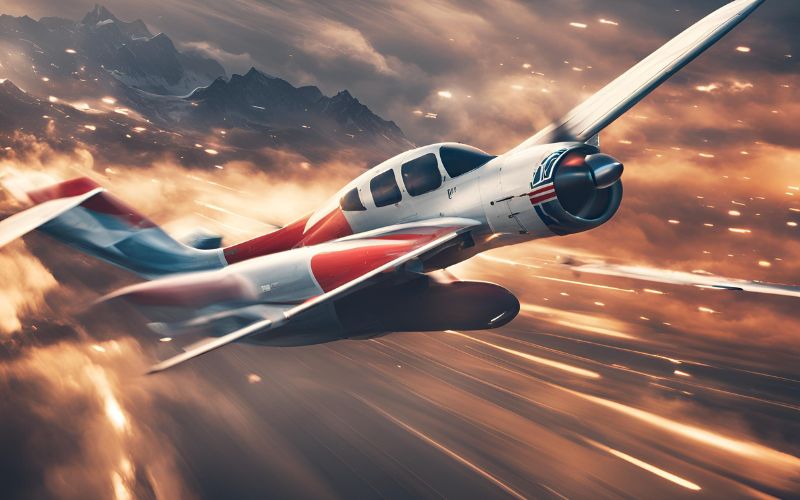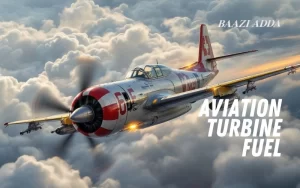The thrill of soaring through the skies, the freedom to travel across continents in a matter of hours—this is the magic of aviation. Whether you’re fascinated by airplanes, airports, or the entire ecosystem that makes air travel possible, aviation plays a crucial role in today’s world. But what is aviation? Let’s explore the definition, importance, and fascinating details about this industry that connects people, businesses, and nations.
Understanding Aviation: More Than Just Airplanes
What is Aviation? Aviation is the science and practice of flying aircraft. This includes everything from airplanes and helicopters to drones and spacecraft. While many associate aviation solely with commercial air travel, it encompasses much more, involving military operations, cargo transport, emergency medical services, and even recreational flying. What is Aviation? Aviation has evolved into a global industry, touching nearly every aspect of modern life.
At its core, aviation involves the design, development, production, operation, and maintenance of aircraft. The industry also encompasses airports, air traffic control, ground support, and logistics. What is aviation? Without aviation, many of the conveniences we enjoy today—fast international travel, global trade, and disaster relief—would not be possible.

The Significance of Aviation in Modern Society
What is aviation? Baazi Adda The impact of aviation goes beyond just transporting people from one place to another. It’s an integral part of the world’s economy and a driving force behind globalization. Here’s why aviation is so essential:
1. Global Connectivity
Aviation makes the world smaller. With more than 100,000 flights taking off and landing every day, aviation connects countries, cities, and cultures, enabling people to explore new opportunities and experiences. Whether it’s for business, tourism, or visiting loved ones, aviation has made travel more accessible and convenient.
2. Economic Driver
Air travel boosts the global economy by facilitating trade and commerce. What is aviation? Aviation supports industries such as tourism, international business, and the import/export sector. In fact, the aviation industry generates millions of jobs worldwide, from pilots and flight attendants to engineers and airport staff. Moreover, cargo flights transport goods and materials swiftly across borders, keeping supply chains running smoothly.
3. Humanitarian Aid
In times of natural disasters or emergencies, aviation is vital for delivering humanitarian aid. Aircraft are used to quickly transport medical supplies, food, and personnel to affected areas, often saving lives and helping communities recover faster. Aviation also plays a crucial role in emergency medical services, with helicopters used for life-saving missions and transporting patients to hospitals.
Key Components of the Aviation Industry
What is aviation? While aviation might seem like a simple process of flying planes, there’s an intricate system at work. The aviation industry is made up of several components that ensure everything operates smoothly and safely. Let’s take a closer look at the main aspects:
1. Aircraft and Airlines
The most visible part of aviation is the aircraft itself. From small single-engine planes to massive commercial airliners, aircraft vary in size, shape, and function. Airlines operate these planes, providing passenger services, cargo transport, and charter flights.
2. Airports
Airports serve as the hubs for aviation, where flights take off, land, and refuel. They are critical in the aviation network, managing millions of passengers and tons of cargo each year. Airports are designed to handle complex operations, including customs, security checks, and ground services.
3. Air Traffic Control
To ensure that planes navigate the skies safely, air traffic control (ATC) systems are essential. ATC monitors aircraft movements, directs flights, and coordinates takeoffs and landings. Without ATC, the skies would become dangerously congested, leading to potential accidents.
4. Aviation Safety and Security
Safety is the top priority in aviation. Strict regulations govern everything from aircraft maintenance to pilot training. Security measures at airports, including screening passengers and luggage, ensure that air travel remains safe and secure. Aviation authorities worldwide work together to enforce these regulations and ensure international standards are met.
How Aviation Has Transformed Our World
What is aviation? The history of aviation dates back over a century, with the Wright brothers’ first powered flight in 1903 marking the beginning of human flight. Since then, aviation has transformed our world in incredible ways.
1. Bridging Distances
Before the advent of aviation, long-distance travel was a slow and challenging process. Today, you can cross the Atlantic Ocean in just a few hours, an unimaginable feat just a century ago. Aviation has reduced the time it takes to travel vast distances, making the world feel more interconnected than ever.
2. Innovation and Technology
The aviation industry is constantly evolving, with new technologies pushing the boundaries of what’s possible. From advances in aerodynamics and fuel efficiency to the development of sustainable aviation fuels, innovation is driving the future of air travel. Emerging technologies, such as electric aircraft and autonomous drones, promise to revolutionize aviation in the coming decades.
Conclusion
What is aviation? Aviation is more than just planes in the sky. It’s a vital industry that powers economies, connects people, and shapes the future of technology. As we look ahead, aviation will continue to evolve, with sustainability, innovation, and safety at the forefront of its development. So, the next time you board a flight or see a plane soaring overhead, remember the incredible world of aviation that makes it all possible.
The sky truly is the limit.







